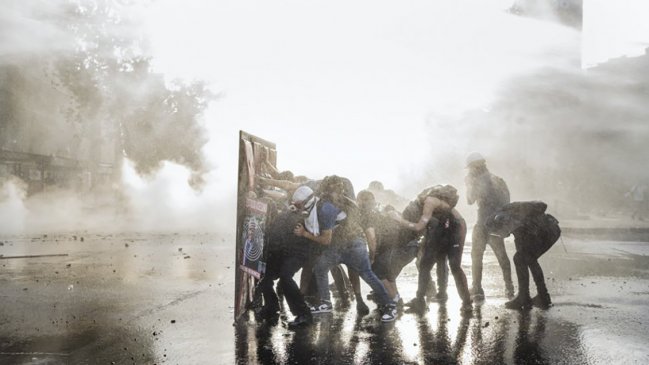World Press Photo destaca la "rebelión contra el neoliberalismo" en la previa al 18 de octubre
El destacado concurso compartió el reportaje fotográfico del italiano Fabio Bucciarelli.

El destacado concurso compartió el reportaje fotográfico del italiano Fabio Bucciarelli.




La prestigiosa organización World Press Photo, la más importante a nivel mundial, destacó una serie de fotografías tomadas en los últimos meses en Chile sobre la represión policial y las manifestaciones en las calles.
"Chile: la rebelión contra el neoliberalismo" es el nombre del reportaje fotográfico del italiano Fabio Bucciarelli, publicado por el reconocido concurso mundial y que ha sido compartido durante los últimos días.
World Press Photo contextualiza el reportaje afirmando que en el país "la gente se levantó durante todo el año en protesta contra la desigualdad económica. El detonante fue un aumento en las tarifas del metro promovido por el presidente Sebastián Piñera el 18 de octubre de 2019".
"Una manifestación pacífica en la capital, Santiago, desató más protestas que llevaron a un levantamiento nacional. Las demandas crecieron para incluir una reforma económica integral y el reemplazo de la Constitución, que fue redactada durante el dominio de Augusto Pinochet en la década de 1980 y que creó una base legal para una economía impulsada por el mercado y las pensiones, la salud y la educación privatizadas".
El reportaje "Chile: la rebelión contra el neoliberalismo" de Bucciarelli fue galardonado con el segundo premio, historias en la categoría Noticias Generales del Concurso de Fotografía de World Press Photo 2020.